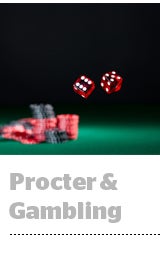 Nelson Peltz, founding partner of Trian Fund Management, narrowly lost a bid to win a board seat with Procter & Gamble on Tuesday, following a vote at the company’s shareholder meeting in Cincinnati, Ohio.
Nelson Peltz, founding partner of Trian Fund Management, narrowly lost a bid to win a board seat with Procter & Gamble on Tuesday, following a vote at the company’s shareholder meeting in Cincinnati, Ohio.
Peltz and his Trian fund are known for waging aggressive proxy battles to obtain public company board positions and then using their seat to reshape brand holding companies, such as Heinz and DuPont.
P&G stock slid by about a point on the day following the news.
Peltz laid out his road map and contentions with P&G in a research report last month. If his bid succeeded, Peltz planned to consolidate P&G’s holding company categories from 10 to three – “Beauty, Grooming and Health Care”, “Fabric and Home Care” and “Baby, Feminine and Family Care” – and to revamp its global marketing strategy.
P&G, for instance, pulled more than $100 million from digital advertising and “we didn’t see a reduction in growth rate,” CFO Jon Moeller said during a recent earnings report.
The CPG holding company has parlayed cost cutting, from marketing in particular, into stronger bottom-line margins. But Peltz argues that the company’s improved margins obscure a dangerous inability to grow market share.
“Those ad savings should have been reinvested in other forms of brand-building to regain lost market share,” according to Peltz’s report. “Instead, management chose not to reinvest, in our view benefitting near-term earnings at the expense of long-term growth.”
P&G has also disregarded M&A, even divesting many of its mid-size assets, which Peltz described as a sign of the company’s failure to develop new or local brands. In the past half-decade, P&G spent $500 million on new brands as smaller rivals Reckitt Benckiser, Church & Dwight and L’Oréal spent $17.7 billion, $1.5 billion and $5.9 billion on M&A, respectively.
By rearranging P&G’s organizational structure and giving brands more control over their marketing at the expense of a top-down, controlled strategy, Trian forecasted better M&A results and stronger fingers on the pulses of local markets.
Gillette, the men’s grooming category leader that P&G acquired in 2005 for $57 billion, has seen market share shift to startups like Harry’s and Dollar Shave Club, which Unilever purchased for $1 billion last year. For Trian, this is an example of how advertising, corporate identity and M&A congeal in the form of market share.
Trian’s report alleges that Gillette executives pushed a direct-to-consumer subscription offering a year before Dollar Shave Club entered the market, but the idea was dismissed by corporate and the company’s sales team.
But P&G’s top marketer, Marc Pritchard, was resistant to Peltz’s ideas, telling AdExchanger last week that, “Splitting the company into three is a very bad idea. We’ve done a lot of analysis that indicates that it would add a lot more cost to the business.”
Trian remains one of P&G’s top investors, and the board’s near loss on a bitterly contested internal dispute won’t lessen scrutiny for the world’s largest advertiser.












